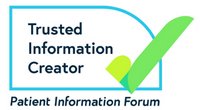SMA with Progressive Myoclonic Epilepsy (SMA-PME)
SMA with Progressive Myoclonic Epilepsy (SMA-PME)
You can:
- Download a printed pdf version of this information here >
- Ask us to send you a printed version: publications order form >
Who this is for
This information is for you if your child has been recently diagnosed with SMA-PME.
This rare form of SMA is a neurological condition that causes weakness and wasting (atrophy) of muscles and a combination of seizures and uncontrollable muscle jerks (myoclonic epilepsy). This is caused by a loss of the nerve cells known as motor neurons, which are located in both the spinal cord and brain stem (this connects the spinal cord to the brain).
There is only limited information about SMA-PME because it is so rare, but your child’s medical team will be able to discuss how it will affect your child and how to manage symptoms for maximum comfort and quality of life.
After a few years of typical development, children with SMA-PME begin to have weakness and wasting (atrophy) in the muscles in their lower limbs. This causes difficulty walking and frequent falls. The muscles in their upper limbs are affected later, and soon the muscle weakness and atrophy spreads throughout their body. Once weakness reaches the muscles used for breathing and swallowing, it leads to life-threatening breathing problems and an increased risk of pneumonia.
A few years after the muscle weakness begins, children start to experience recurrent seizures (epilepsy). Most people with SMA-PME experience several different types of seizure, which often increase in frequency over time and are not usually well-controlled with medication. Individuals with SMA-PME may also have episodes of rhythmic shaking (tremors), usually in their hands; these tremors are not thought to be related to epilepsy.
Some people with SMA-PME develop hearing loss caused by nerve damage in their inner ear.
For children with SMA-PME, life expectancy is usually into late childhood or early adulthood. Sadly, life is often shortened by respiratory failure or pneumonia.
The affected gene is:
- For more information about the ASAH1 gene ¹‾² >
SMA-PME has an Autosomal Recessive inheritance pattern, meaning that two faulty copies of ASAH1 must be inherited in order for the condition to develop.
Though not a substitute for professional medical advice, you can find more information from the US National Library of Medicine, Genetics Home Reference >
SMA UK >
- Phone: 01789 267520
- Email: office@smauk.org.uk
Provides information and support for anyone in the UK affected by any form of SMA.
Contact >
- Phone: 0808 808 3555
Provides information and support for families with children with a disability.
Children’s hospices
Located throughout the UK, these offer a wide range of services and support to eligible children and families; some also offer short breaks. Details of hospice services and more information is available from Together for Short Lives >
1. Zhou et al. (2012) ‘Spinal muscular atrophy associated with progressive myoclonic epilepsy is caused by mutations in ASAH1’, American Journal of Human Genetics, 91, pp. 5–14.
2. www.omim.org/entry/159950 (last accessed 16th January 2025)
General References
Eckart. M et al (2012) The natural course of infantile Spinal Muscular atrophy with respiratory distress type 1 (SMARD 1) Pediatrics; 129; e148 dx.doi.org/10.1542/peds.2011-0544 (accessed 16th January 2025)
Saladini M et al. (2023) Spinal muscular atrophy with respiratory distress type 1: Clinical phenotypes, molecular pathogenesis and therapeutic insights. J Cell Mol Med 24: 1169-1178. dx.doi.org/10.1111/jcmm.14874 (accessed 16th January 2025)
Van der Pol. WL et al (2023) 190th ENMC international workshop: Spinal muscular atrophy with respiratory distress/distal spinal muscular atrophy type 13 May 2012, Naarden, The Netherlands. Neuromuscul Disord 23: 602-9. dx.doi.org/10.1016/j.nmd.2013.04.004 (accessed 16th January 2025)
Was this page useful?
 Version: 2
Version: 2
Author: SMA UK Information Production Team
Last Reviewed: January 2025
Next Review: January 2028
Links last checked: January 2025
This page, and its links, provide information. This is meant to support, not replace, clinical and professional care.
Find out more about how we produce our information.
